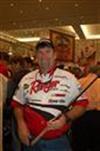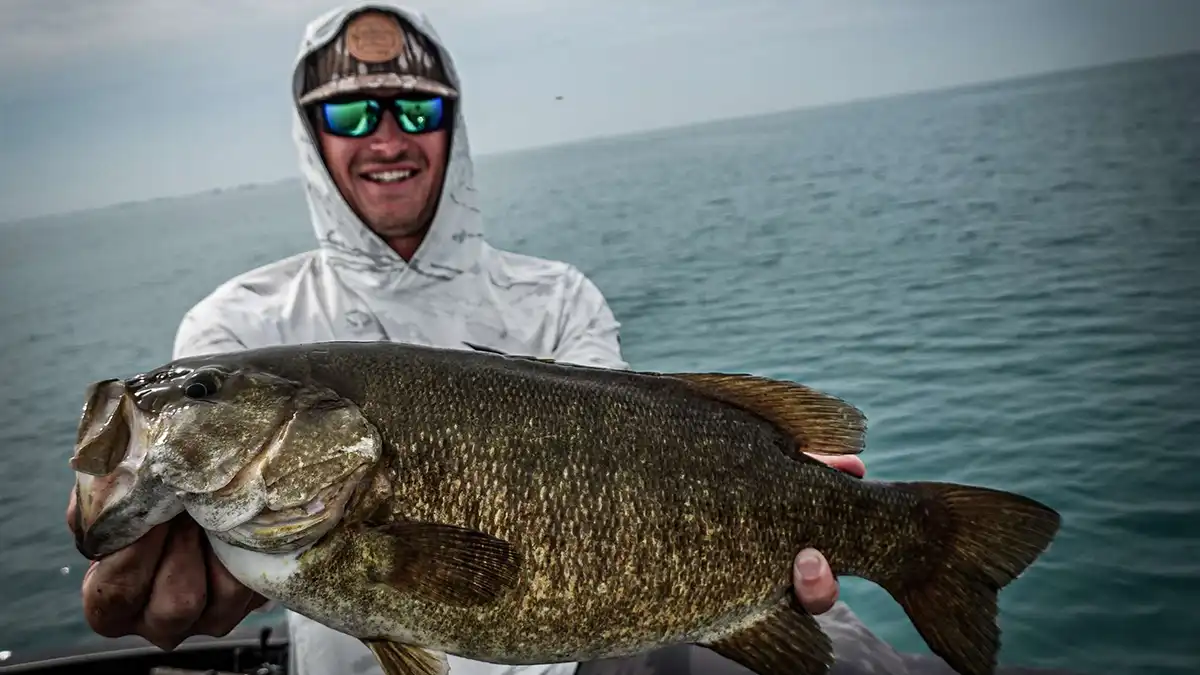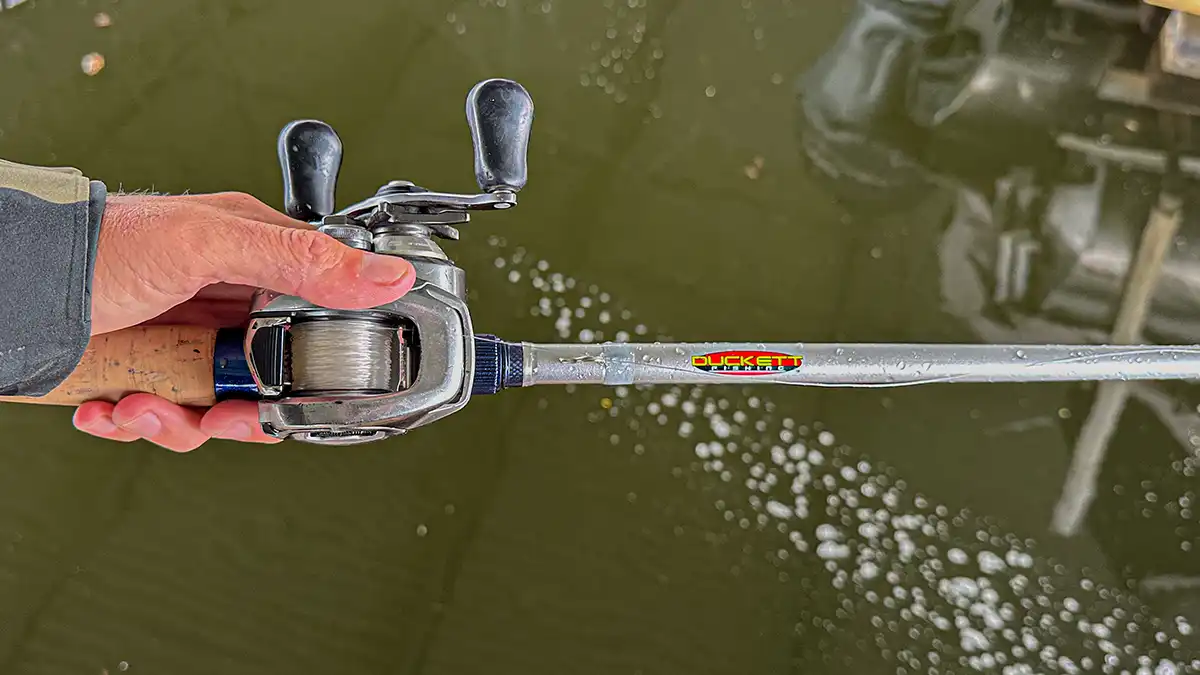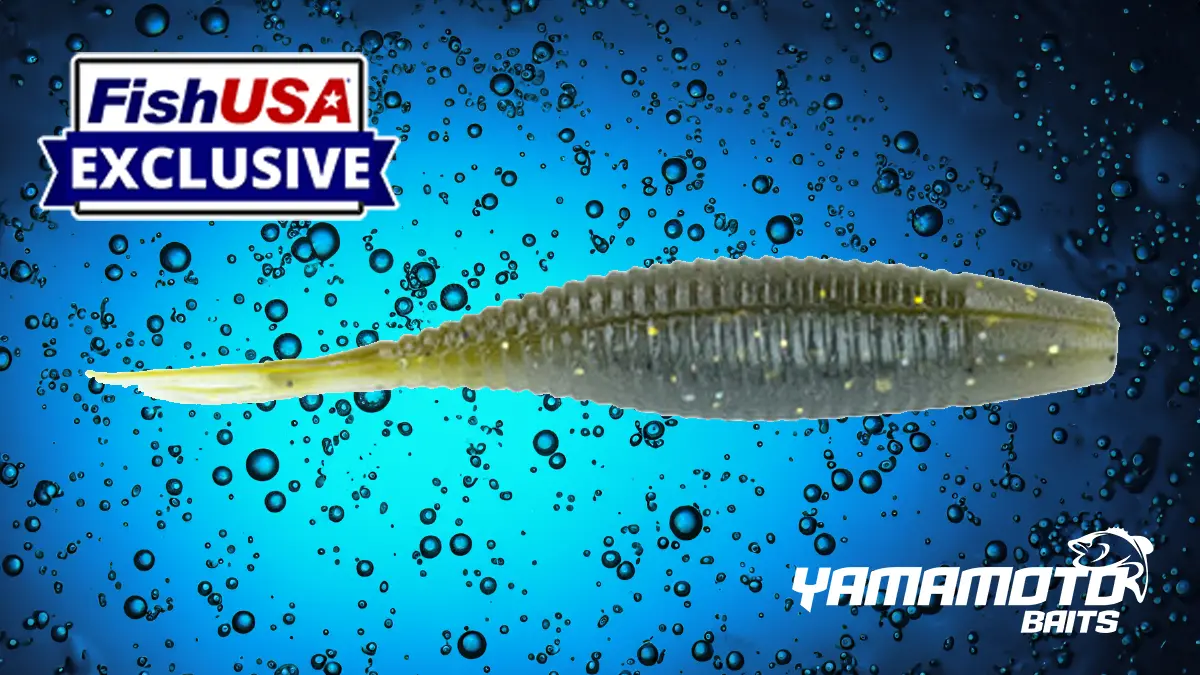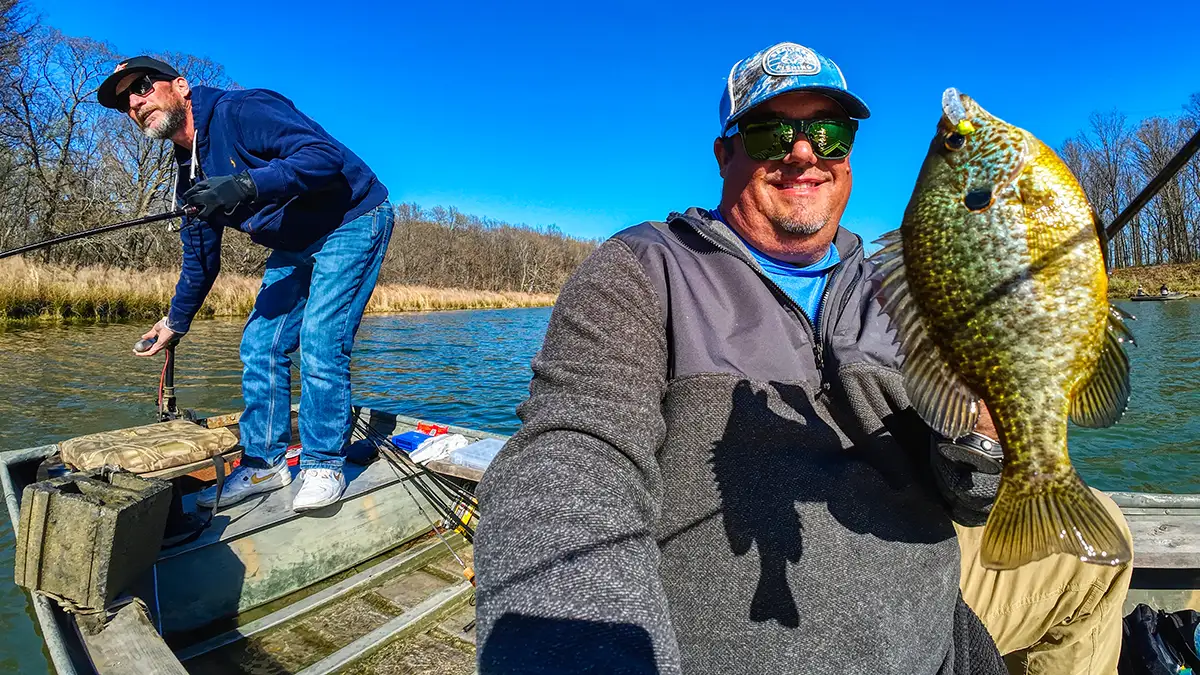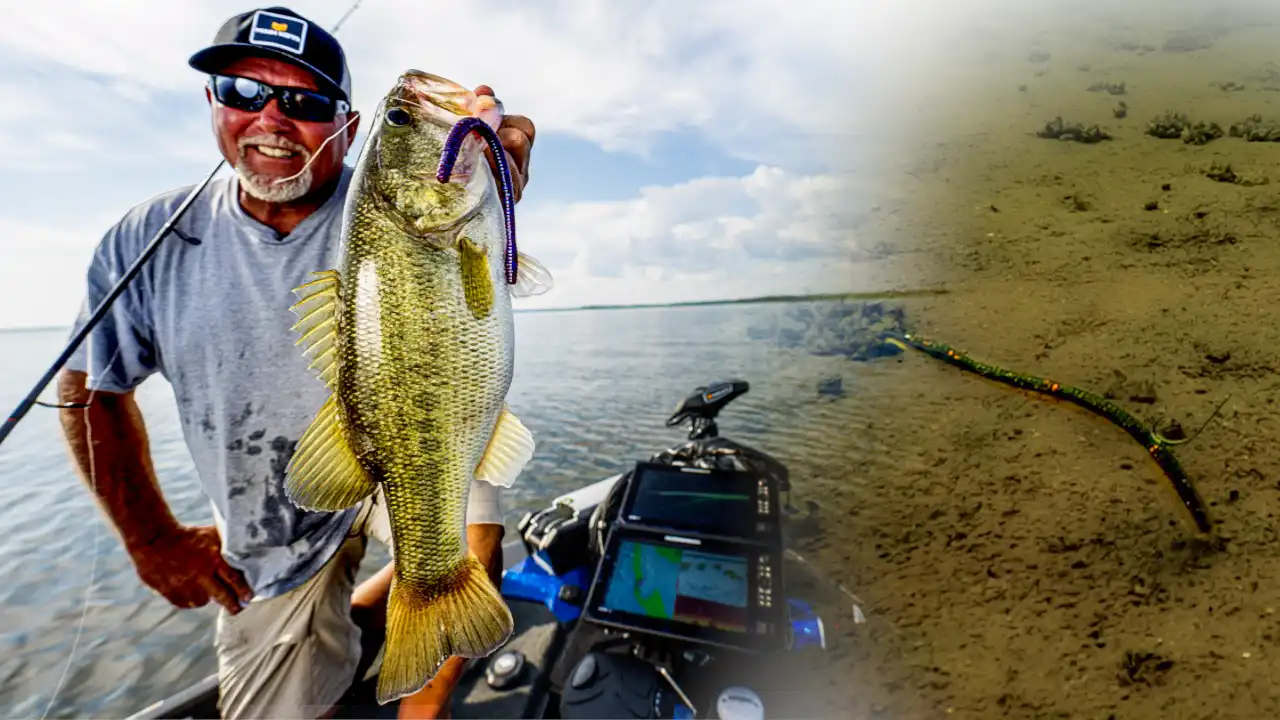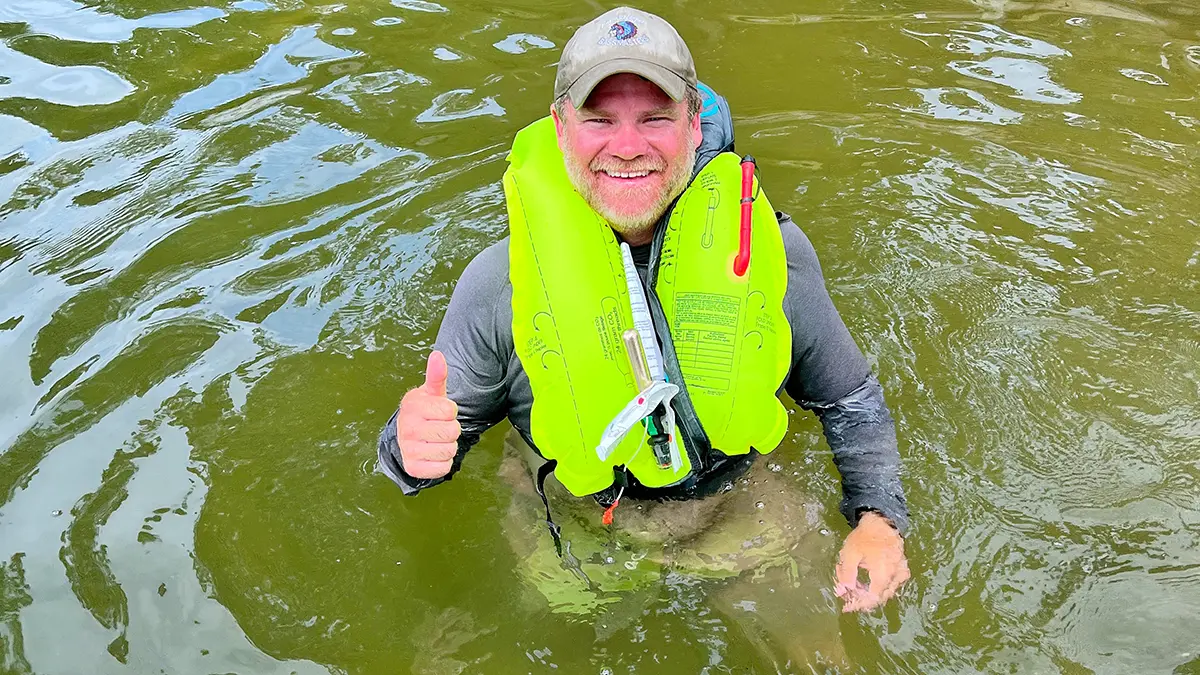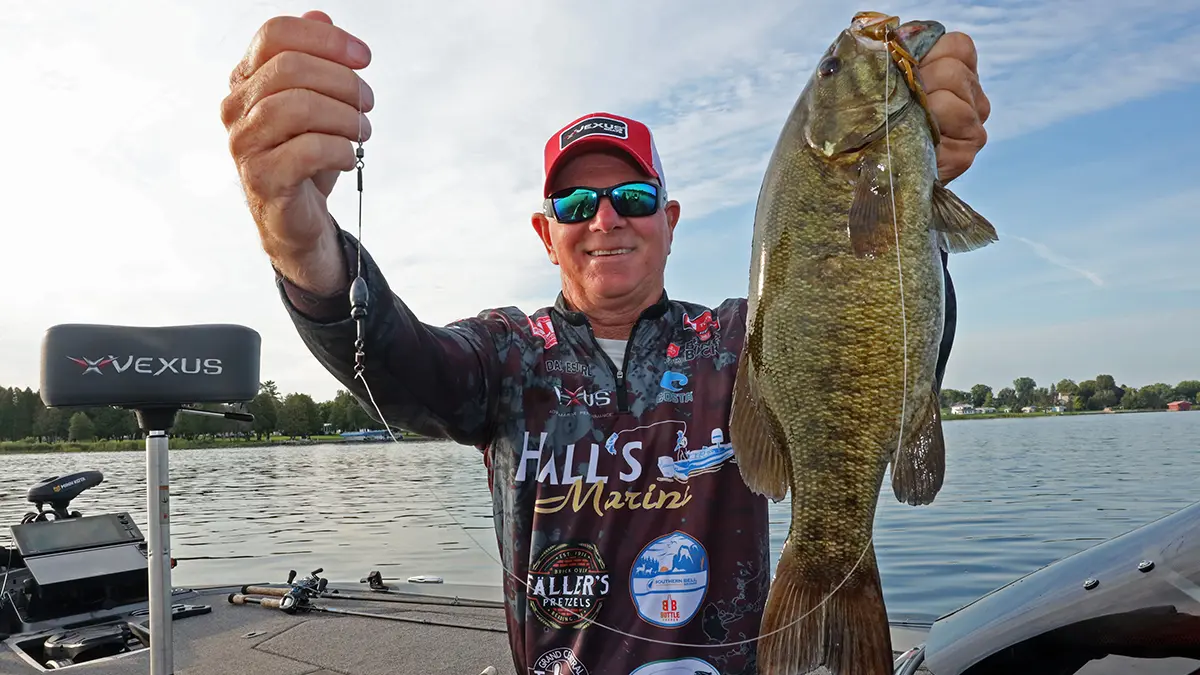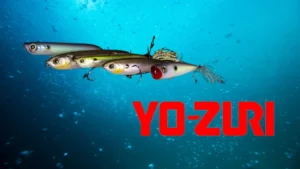But, from time to time, there is the angler who decides to forego that risk and stay at home perfectly content with his success. The west has one of these anglers and his name is Gary Dobyns.
Dobyns is arguably the most decorated angler in the west. Yes, the west has produced anglers like Skeet Reese, Aaron Martens, Gary Klein and others who have made a huge impact on the sport but Dobyns, unlike these previously mentioned anglers, has done everything without leaving the west.
He has amassed over 2-million dollars in winnings, has won 40 boats and has won more tournaments than any other angler in the region. Although he has taken a little break from serious tournament competition this past year in order to start up his rod company, no one can dismiss his dominance when he shows up for an event. This was proven just a few months back when he put his head down and fully committed to the U.S. Open on Lake Mead in August – arguably the toughest tournament there is – which he won.
In this edition of A Western Perspective, I had a chance to sit down and talk with Gary about his career, why he stayed in the west and why he feels the west produces some of the best anglers in the world.
Humble Beginnings
Although Dobyns hails from Yuba City, California, his family’s roots are in Oklahoma and Arkansas, two of the biggest states when it comes to bass fishing.
“I was a lucky kid having grown up where I did,†he said. “My family is all from Arkansas and Oklahoma. They migrated to California and brought the fishing and hunting way of life with them. Fishing has always been a way of life with my family. It’s something that we’ve always done. Mostly we fished sloughs, ponds and backwaters. None of my family had ever fished or even thought about fishing a tournament. My roots are in fishing and they instilled it in me.â€
He was in his mid-twenties when he got into to tournament fishing.
“I’d always read Bassmaster magazine but I never thought to fish tournaments,†Dobyns said. “I didn’t think I was that good or really know how to go about getting into a tournament.
“Then in 1983, I fished my first pickup tournament. It was a local bait and tackle shop derby. There were about 40 boats in the thing and I finished near last in the event, catching only one fish. But it was fishing and competition and I love both. I was hooked from that day on. After that I joined a club for a year and a half and moved up to team events and small draw tournaments. I fished poorly for the first couple of years and then finally started catching a decent finish once in awhile. I can remember my dad telling family members, ‘Gary will get good at this or he’ll finally quit. He’s too competitive to keep taking these kinds of whippings.’â€
With his competitive nature and hard work he was bound to succeed.
“As time went on, I got more versatile and developed a style of fishing,†he said. “What I found was I was good at fishing fast and covering water with what we call reaction baits today – especially the jerkbait.
“Not many anglers back then were fishing with a jerkbait,†he added. “There was one angler fishing the desert lakes named Jimmy Crisp. He was doing a technique that he called Crispin’ or rippin’. He would use a long spinning rod and make big sweeps with the rod. This was an absolute deadly technique. It evolved into jerkbait fishing. I found that by throwing the brightest, flashiest bait that I could find and fishing it fast I caught a lot of fish. I could draw fish out of the deep, clear waters we have here in the west. I had a lot of success with this technique and it actually helped me develop my style of fishing and made me the angler I am.
“From there I started fishing spinnerbaits, crankbaits and topwater – anything that I could work fast and cover water with,†he said. “I even got very good at flipping. Flipping to me was reaction fishing too. I could cover a lot of water fast. That was my style and still is today.
“After that rocky start, I won my first AOY in 1987. Back then it was all pro-on-pro draw events which are a lot harder than the pro-ams we have today. I’d been hanging in third place in points most of that year. On the last event, I finished 12th and the two anglers in front of me had terrible finishes. I’d won my first AOY title and with it came a ton of confidence. I realized I could really fish with these guys. I won my first boat in 1988.
“What I consider my breakout year was 1989,†he noted. “That was the year I won four boats. I went from fishing a club in the early years to donating in ‘83 to ’85. But because I stepped up and started fishing bigger events, I got better and learned a lot faster.
“It’s the same for everyone,†he said. “If you want to be a better tournament fisherman, you have to fish against better competition. You can’t excel if you don’t fish against the best anglers out there.â€
Western Anglers
Dobyns feels the reason western anglers do so well back east is because of the conditions they fish in the west.
“As far as western anglers go, they have to be a lot more versatile out here to succeed,†he said. “We have every type of water out here. We have big rivers with smallmouths, tidal water, shallow natural lakes and deep, clear reservoirs that can fluctuate 150 feet to 200 feet in a year. We also have the desert lakes which are in a class of their own. This means that in order to be competitive, we have to be good at all these types of water and all the techniques that these waters require.
“The anglers out here can be fishing a worm on Lake Oroville in 70 feet of water one week and the next week fish the Delta with 65-pound test braid punching mats. It’s pretty amazing to be fishing in 70 feet one week and in 2 feet the next or anywhere in between. If you’re not good at everything, you’ll get your nose bloodied up pretty fast.
“The diversity of the water is only one of the challenges in the west,†he added. “We have to deal with high fishing pressure and lots of recreational boat traffic. In the east, they simply have more water and places to fish than we do. Our fish get a lot of pressure and conditioned to baits and techniques. Our guys are constantly trying to come up with something new, whether a bait or technique, to try to gain an advantage over their competitors. Almost all techniques start in the west.
“For example, shaky-head fishing wasn’t really developed in the south like most anglers think,†he said. “It’s a technique that was developed out here back in the late ‘70s and early ‘80s. We did it with an open hook lead head jig that many still call a darthead. Some other techniques that were developed in the west are split-shotting, drop-shotting, flippin’, swimbaits, rippin’ and many more. I could go on and on but the main reason these techniques were developed was anglers were trying to get an edge to fool savvy fish and win tournaments.
“I also think we have more guys experimenting with baits and trying to make changes than they do in the east,†he said. “Our guys want to customize everything they use. They push the envelope.â€
Why West?
While most anglers with Gary’s success chased their dreams east, he was content to stay home and compete in the west.
“I never went back east because I didn’t want to sacrifice or gamble my family,†he said. “I got married and had kids early in life and I wasn’t about to jeopardize that. It’s always been tough to make it as a pro fisherman. You’re constantly away from home and the financial burden is always there.
“I was a machine operator for a high voltage cable plant. I had good benefits, could work all the overtime that I wanted and had a stable family life. I never wanted to sacrifice my family to chase a dream. I’m just way too cautious to gamble my family because I was not about to hock my house for fishing.â€
Asked whether he would have done it in the recent past or future, his answer was;
“Three years ago if the right opportunity had come along, I probably would have done it. Now with my rod company starting up and doing well I feel that I owe my family, staffers, friends and my dealers to stay dedicated to the business. That means I continue to stay in the west, work with my sponsors and I have plenty of events to fish.â€
Career Highlights
Of the many tournaments, AOY awards and championships Dobyns has won, a few stand out in his mind.
“I have no clue how many tournaments I’ve won over the years,†he said. “I don’t even know how many AOY awards I’ve won. I know it’s more than 25 with all the different circuits. It’s not that they don’t mean anything to me, I just can’t remember. The crazy thing is I can tell you about almost every fish I have caught in a tournament, what I caught it on and where. I can remember all the break lines, rock piles and structures in all the lakes that I fish. The problem is that I couldn’t tell you what I had for breakfast this morning. I openly admit that I have a terrible memory but not when it comes to fishing. I know this is very strange.
“There are a few tournament wins that do stand out in my memory and mean a lot to me,†he said. “The best win I’ve ever had happened this year at the U.S. Open on Mead. I’ve been in the top 5 far too many times, especially second-place finishes. This is the one event that ate at me. After my second-place finish last year, I was committed to putting forth a full effort into practice and trying to win the event. I finally did it. I won the U.S. Open.
“The rest of my top memories would be the 1999 Bassmasters at Lake Shasta. Then there was the FLW EverStart at the Delta (2003), the WON Bass Classic in 2005 (Lake Mead), Western Classic in 2002 (Oroville), the West Coast Bass Classic in 2000 (Clear Lake), the WON Bass Classic at the Delta (1998), the West Coast Bass Classic in 1998 (Lake Shasta) and the West Coast Bass Classic in 1990 (Sacramento River).
“The reason I’m so proud of these is because they were all big events or championships on different types of water with different techniques.â€
But there are two other awards he’s received over his career that mean a lot to him, too.
“Two special awards are the Sportsman of the Year awards I won with West Coast Bass and Western Bass,†he said. “I won these with the anglers voting and I was doing a lot of winning. Most of the time anglers don’t like someone who is winning a lot but I always treated people right, love to help other fishermen and I did it in a sportsman like manner. There is no better feeling than to be rewarded by your fellow competitors.â€
So what’s in his future?
“This next season I hope to fish more than this past season,†he said. “Running the rod company takes a lot of my time and right now it has to be my number-one priority. But I’m sure I’ll fish all the Angler’s Choice events, the WON Bass events and maybe some of the FLW events. We’ll have to see, though.â€
-Terry Batisti


